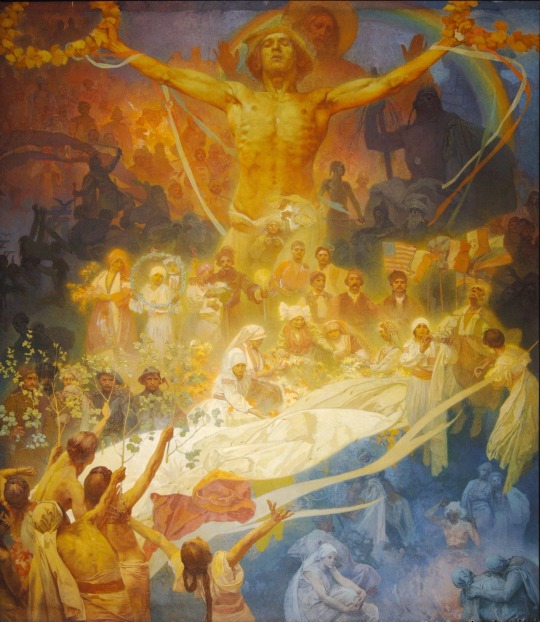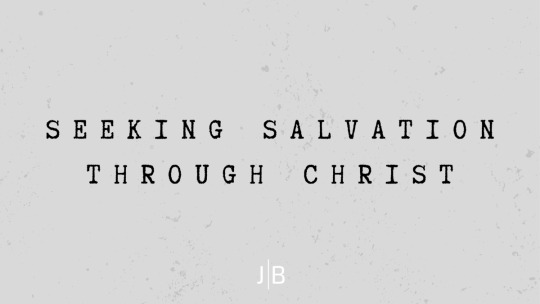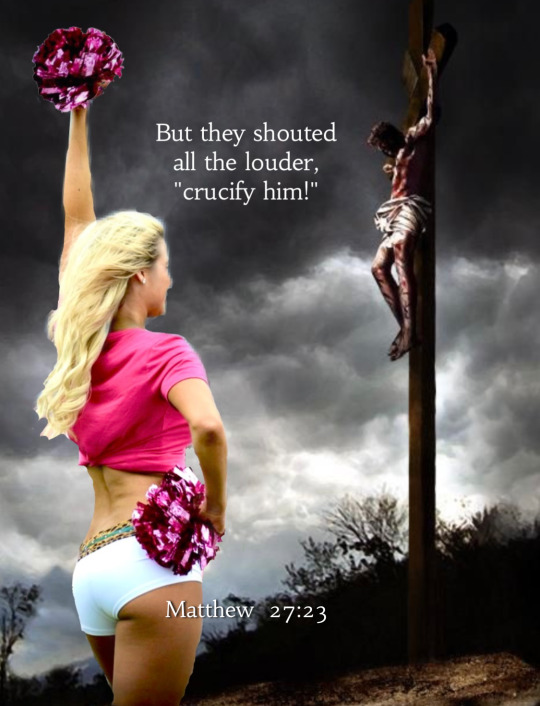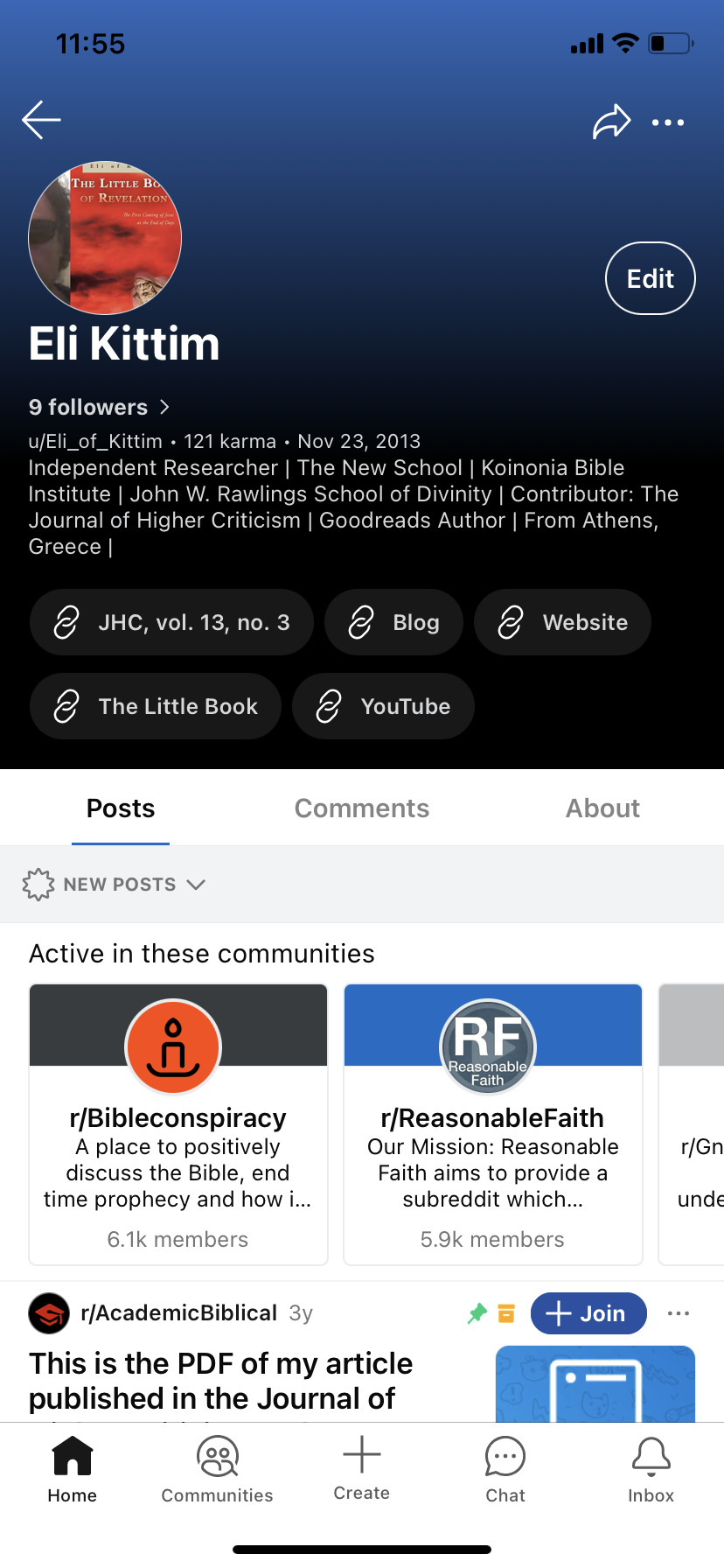#soteriology'
Explore tagged Tumblr posts
Text
Cosmas Megalommatis, Etana: World Mythology-1989
Κοσμάς Μεγαλομμάτης, Ετάνα: Παγκόσμια Μυθολογία, Ελληνική Εκπαιδευτική Εγκυκλοπαίδεια, 1989
Кузьма Мегаломматис, Этана: мировая мифология, Греческая педагогическая энциклопедия, 1989
Kosmas Megalommatis, Etana: Weltmythologie, Griechische Pädagogische Enzyklopädie, 1989
Kosmas Gözübüyükoğlu, Etana: Dünya Mitolojisi, Yunan Pedagoji Ansiklopedisi, 1989
قزمان ميغالوماتيس، اتانا : اساطیر جهانی، دایره المعارف آموزشی یونانی، 1989
Côme Megalommatis, Etana: Mythologie mondiale, Encyclopédie pédagogique grecque, 1989
1989 قزمان ميغالوماتيس، إيتانا : الأساطير العالمية، الموسوعة التربوية اليونانية،
Cosimo Megalommatis, Etana: mitologia mondiale, Enciclopedia pedagogica greca, 1989
Cosimo Megalommatis, Etana: mitología mundial, Enciclopedia pedagógica griega, 1989
Cosmas Megalommatis, Etana: World Mythology, Greek Pedagogical Encyclopedia, 1989

------------------------
Скачать PDF-файл: / PDF-Datei herunterladen: / Télécharger le fichier PDF : / PDF dosyasını indirin: / :PDF قم بتنزيل ملف / Download PDF file: / : یک فایل دانلود کنید / Κατεβάστε το PDF:
#Etana#Ninurta#Messianism#Assyria#Babylonia#Mesopotamia#eschatology#soteriology'#Ετάνα#Νινούρτα#Ασσυρία#μεσσιανισμός#εσχατολογία#σωτηριολογία#σουμεριακοί μύθοι#μεσοποταμιακές θρησκείες
0 notes
Text
tolkien meta: the melodic structure of the ainulindale, arda's endgame, and the doom of men
so basically this is about what one can learn and connect to the rest of the legendarium's lore from the ainulindale, and also peer into tolkien's psyche as a side effect i guess. expect excessive theology or more fun imo philosophy of divinity and lengthy tangents about melkor, the nature of evil and theodicy
a small disclaimer - this touches thorny topics in philosophy like the problem of evil, the nature of redemption/salvation, death...
this isn't about my beliefs but presenting and reflecting on tolkien's own within the history of ideas. i acknowledge anyone who reads this also has their own, and can agree or disagree with tolkien. my views may seep in unintentionally but i try to go deeper than that.
pd: I write Eru/One/God indistinctively on purpose. it's for rhetorical emphasis, not so much out of (default cultural) christianity.
part I - introduction (in this post) part II - the themes/structure, discussion part III - discussion (cont): themes of arda and life part IV - discussion (cont 2): theme of the children part V - discussion (cont 3): aftermath/second music
Introduction (i rec reading even if you're versed in the lore)
for those who are not so familiar with parts of the legendarium but still interested in a deep dive, the ainulindalë ("song of the ainur") is the creation myth of tolkien's world.
i rec just reading it if you haven't even if it's after reading this. it's quite beautiful and unique and it's brought admiration even from ppl who study that kind of thing professionally about real cultures. i'm not given to flattery but idk just check it out.
so anyway, the ainur, spirits born from the One creator's mind directly, sang under (or despite) His direction and the melody (both harmony and discord) that resulted, is the history of the world.
by the world we have two concepts here, the entire universe (eä) and the planet (arda) 'earth', of which middle-earth is a later-stage continent. the music itself was a creative process that the ainur partook in before knowing the full implication of their singing.
God showed the ainur the vision of what their music had created and when they saw the world they wanted to live it, to dwell on it and experience it.
God granted this but said they had to remain in it until the full music, the full story had played out.
this includes everything that happens in the Silmarillion, the LOTR movies and sequels/prequels, the TROP series, games, etc, and in some stages of Tolkien's opus, our own world (WWI, WWII, etc).
the Discord refers to the rebellious effect of Melkor on the music as much as his part of the music - the dissonance born from his part's coexistence with the rest of the melody that is in harmony, and takes a 'life of its own'.
this is not unimportant, but i'm not going to discuss it at any point. i will point out here that it has been argued -controversially- by some people to be relevant in compatibilizing or explaining otherwise difficult-to-reconcile lore points that deal with "non-Melkorian evil". this is about things like Ungoliant or the nameless things 'whose mention darken the light of day', whose in-world origins are unclear.
on a broader note, this represents two very different intuitions about evil and divinity (Tolkienian v Lovecraftian, we could say). these are difficult to compatibilize and more than Tolkien's psyche, represent ancient tensions within monotheistic religions themselves, i think. so within Tolkien's world, which has an Abrahamic/monotheistic god, you still find traces of Lovecraftian horror.
all that follows is about Tolkienian evil (meta) i.e. Melkorian evil (in-world), that is uncontroversially and explicitly under the governance of the One, although non-Melkorian evil is a fascinating subject.
#trop#rop#rings of power#the rings of power#lord of the rings#the lord of the rings#silmarillion#lotr#tolkien#ainulindale#music of the ainur#song of the ainur#ainur#ainu#melkor#manwe#apokatastasis#problem of evil#theodicy#christian theology#catholic theology#theology#eschatology#soteriology#redemption#salvation#christianity
32 notes
·
View notes
Quote
"Being saved" means "remembering" (your true identity and true situation and true history) — this at first seems to be Plato's anamnesis but is really Gnostic in the widest sense, knowledge regarded as ontologically primary both in terms of the fallen individual and, more, in terms of cosmic repair. And here, indeed, is the essence of Gnosticism, as H. Jonas says: not that the gnosis saves but, rather, the ontological value and meaning of it, that it is absolutely primary as the real thing, second to nothing.
Philip K. Dick, The Exegesis of Philip K. Dick
#awareness#knowledge#memory#ultimate#soteriology#salvation#quotes#Philip K. Dick#The Exegesis of Philip K. Dick
76 notes
·
View notes
Quote
It is highly misleading to speak as if all religions share a common soteriological good and simply differ on the means to reach it.
Harold A. Netland
19 notes
·
View notes
Text

"Eschatological time [...] defines the present as 'evil', [...] the situation of the 'fall'. It is supposed that in the future there will only be further tests and catastrophes, corrected by episodic periods of relative improvement, connected with the activity of religious devotees or new prophets. The past is thought of as 'Heaven', 'the Golden Age', a period for 'imitation'. Thus, time flows downward. The perfect, harmonious world belongs to the sacred past. The present is a fall and suffering, and ahead lie greater tragedies.
Religion sets in opposition to downward flowing time an alternate path, which we can call a 'vertical path', a 'path leading upward'. This vector opposes the inertia of time and strives to change the direction of its flow. As a result, a specific time emerges: the time of salvation, soteriological time or messianic time.
The world moves toward the end through descent. The faithful must move contrary to time, along the axis of a 'different time', which flows perpendicular to usual time or against it. Thus, alongside time as regression (a feature of the world as such), religion asserts another heroic dimension, projected onto a particular future and comprising the sphere of religious eschatology.
Eschatology is a distinctive feature of time in the society of the narod. [...] The characterisitic quality of the narod appears in it: the project, the will, the lunge into the future, the dialog with the forces of fate. Religious time sees in the future the denouement of the heroes' battle against evil. This denouement is an end, an 'eschaton'."
21 notes
·
View notes
Text
Seeking Salvation Through Christ
In the tapestry of human existence, one thread stands out as paramount — the quest for meaning and salvation. Soteriology, the study of salvation, has captivated the hearts and minds of individuals throughout history. In this exploration, we embark on a journey that beckons us to consider the profound and transformative message found in seeking Christ as the key to our ultimate redemption. From…

View On WordPress
#bible#christian#christianity#faith#god#godisgood#jesus#love#Salvation#scripture#scriptureverse#soteriology
12 notes
·
View notes
Text
The mystical journey that leads to union with God enables the true self to emerge from the dark night into the dawn of day, and also prepares the self to know and name, albeit imperfectly, the ineffable mystery Juan calls “un no sé qué.” Stripped away from all that is not God, human persons can truly encounter God. Or, as Juan would say by appealing to his todo-nada dialectic (everything/nothing), we strip ourselves of everything that is not God to discover God, and everyone and everything in God. The process of purification and illumination that transforms the will and the mind has as its central purpose to push us beyond familiar notions of where God is found, how God is known, and how God is named. ... By opting to purge theological errors—errors communicated through God-talk all too familiar within our families, our Church, and our society—queer persons challenge heteronormative and gender binary theologies that have themselves become idols and obstacles to ascending the mountain of love and coming to know the God who is beyond all names and experiences, the God that Juan knows as “un no sé qué.” The ascetic practice of unknowing in order to know is a necessary step for queer persons to experience and know God in their queer ways of loving and knowing. ... We need the humility to acknowledge that God cannot be confined to any closet, for God is indeed an “I know not what.”
Miguel H. Díaz, Queer God de Amor (2022)
32 notes
·
View notes
Text
Evangelicals are a death cult.

6 notes
·
View notes
Text
I sat on the idea that I thought Penal Substitution was a theological dead end for years before I said anything to anyone. And then, the question was always, "Don't you think there has to be a better way to understand God and his saving work through Christ that works better with the God of the Bible then Penal Substitution?"
The answer was always unequivocally, "NO."
And yet so many scriptures talk about God in a way different than the preachers talk of him.
I gave up.
I determined that the views my fellow American Christians had of God was decidedly wrong, but I didn't have anything better, so I just kept my mouth shut - giving a mild protest here or there. But knowing in my heart that the God of American Protestantism was not the God of the 1st Century Martyrs.
We had lost our way. Of that I was certain.
As an Adventist, I grew up thinking about end time events, I knew that the tools my particular form of Protestantism gave me were weak, relatively useless if my comfort or life were seriously threatened. I determined to myself that the best thing I could do would be to not deny God as best I could - Beyond that, he would do with me what he would. I have no crystal ball. I can't pretend I'm perfect. But there are so many Protestant Americans that argue that they can do anything they wanted to through God's Grace - again, that seemed overly indulgent, and not quite how life works. Who makes up the rules? Not the ten commandments - but the denominational midrash. Which denomination even had the correct divine midrash?
Eastern Orthodox Christianity has given me that alternative vision.
The Soli Deo Gloria is not found in the person of an inscrutable Cosmic Warlord.
Glory to God for his tender mercies.
#American Protestant Christianity#Eastern Orthodox Christianity#Magic Man in the Sky#Inscrutable Cosmic Warlord#Penal Substitution#Soteriology#The Demonic Gospel
2 notes
·
View notes
Text
Eli Kittim Reddit

#the little book of revelation#elikittim#bible prophecy#ελικιτίμ#bible study#ek#bible#το μικρο βιβλιο της αποκαλυψης#eschatology#christology#soteriology#christian apologetics#εκ#θεολογία#Έλληνας Μεσσίας#the future incarnation of Christ#the Jesus prophecy#the Greek Jesus#the first coming of Jesus at the end of days#the birth death and resurrection of Christ according to the Greek New Testament Epistles#ο Χριστός είναι Έλληνας#Βίβλος#Η πρώτη Παρουσία του Ιησού στο τέλος των Ημερών#Η πρώτη έλευση του Ιησού στο τέλος του κόσμου#Καινή Διαθήκη#ἡ κοινὴ διάλεκτος#Biblical Greek#Hebrews 9:26#1 Peter 1:20#Eli Kittim Reddit
1 note
·
View note
Text
mhm yes he's saying the everyman is the moral backbone of driving the battle against evil, not kings. bc evil is primordially fought in every soul, not in the battlefield.
but the fellowship is a fellowship, and they are not protagonists nor could have succeeded on their own. respect for them is not disrespect for the others. aragorn was not "just a distraction", he represented not just monarchy, but a legacy reaching back to the very sources of light in the world, the honor of the Edain, etc.
in fact, the message is that they don't succeed even when all their might is brought together. the climax is the near-catastrophe when frodo becomes corrupt and morally fails. they don't blow it all to hell; evil still undoes itself. the eucatastrophe. and come the Eagles. the very message of the work is deeply christian and not simply secular humanist: human effort against evil is both meaningful and vain, divine intervention bridges us to victory. which is why i think it's great we have it.
You know, it's kinda funny how much of high fantasy centers around kings and nobility and courtly intrigue considering that the archetypal high fantasy, Lord of the Rings, had the rather explicit moral of "saving the world is up to this backwater hick and his gardener because no politician, least of all inherited nobility, would have the ability to see past their own ambition and throw away a weapon". Oh sure, Aragorn is a great king and all, but there's a reason he's over there running a distraction ring while the hobbits do the real work. Sauron loses because he gets distracted by kings and armies and great battles (i.e. typical high fantasy stuff) letting Frodo and Sam sneak through his back door and blow it all to hell.
Just saying, maybe old Jirt knew what he was saying when he said that the small folk doing their best and holding to each other was more powerful than a dozen alliances and superweapons and we should respect him for it.
#tolkien#tolkienian themes#soteriology#eucatastrophe#tenn' ambar-metta#in the end we win#Corynthians 15:26
53K notes
·
View notes
Text
Doubtless I was jaded into confabulation long, long ago, though by my own doing or Oryx's blistering epistemic ambitions I really do not remember. (That is a lie, dear reader, but only one.)
1 note
·
View note
Text
How Salvation is Obtained
How Salvation is Obtained | Pastordin Insights Home | Media | Contact How Salvation is Obtained Published on May 24, 2024, at 9:00 a.m. Summary of the Section Understanding how salvation is obtained is crucial for both personal faith and effective evangelism. This section delves into the biblical means by which salvation is acquired, examining various theological perspectives to highlight…
0 notes
Photo

On Human Sin & Consequence: A Theological Video Essay (on Wattpad) https://www.wattpad.com/1490935064-on-human-sin-consequence-a-theological-video-essay?utm_source=web&utm_medium=tumblr&utm_content=share_reading&wp_uname=ValerieLynnStephens https://www.lulu.com/shop/valerie-stephens/collected-essays-of-valerie-lynn-stephens/paperback/product-w4v9pv2.html?page=1&pageSize=4
1 note
·
View note

